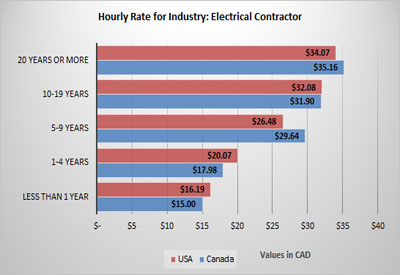Value Selling

By Taylor Gerrie
How can we make a customer successful and continue to grow? What can we do to help them win orders in their respective industries against their competition? Why should they do business with us?
For suppliers and distributors, these are very difficult questions because often customers believe that the answers to these questions can be “I need a better price.”
One of my negotiating experiences ended up becoming a price battle. Both parties haggled over the price until one party conceded (that was me). I sacrificed a large amount of margin to win that order, but at least I won it… right?
No. The issue that arose was that all other negotiations with this customer ended up being a fight over price because I set the standard and lowered my price on the first order. If a customer knows that you will do something to benefit them without giving anything in return, they will ask for something again because they know you will do it. This was a perfect example of winning the battle and losing the war.
One of the most challenging concepts in business is to influence a customer away from the concept of “price negotiating” towards “selling on value.” Lowest price is not always the best or lowest overall cost for the customer.
A competitive price, supported before, during and over the life of the project would be tough to challenge as not being truly valued. For companies that do not offer the lowest price, pricing negotiations can be awkward and dangerous to customer relationships. These types of negotiations often lead to win-lose outcomes and cannot sustain a long-term business strategy.
Talking about price causes anxiety for both parties and if there is only one winner it more likely to decrease your chances of repeat business. If the supplier wins then it may be safe to say that there will be no repeat project business and this could negatively impact their ability to continue operational business with that same customer. If the customer wins then the supplier may not want to offer their products and services to that customer, forcing the customer to find an alternative supplier. This is costly for either party: the supplier loses growth opportunity and the customer incurs labour costs in looking for a new trusted supplier.
The key is to show the customer how you can offer value that increases their productivity and efficiency while mitigating their risk. Valued suppliers build relationships to consultative levels, where you (the supplier) become a trusted advisor. Clients recognize and value both technical and commercial support they receive. This is further supported by having the right inventory, support resources and effectively responding to customers’ requirements.
By showing how you can help customers improve their operations and increase their overall bottom line, it becomes less of a concern for a customer to “get a better price.” For example, if a customer is requesting to purchase a product such as a drive, offer an unsolicited service like drive start-up assistance. This shows you can offer other value-added solutions to help them. By having a trained professional assist in the installation it will reduce the risk that a customer’s application will be installed incorrectly, will have the customer operating in a shorter time frame, and will allow the customer to efficiently allocate their technicians’ time to different projects. This can move the conversation away from the price to the scope of the project. You gain a lot of credibility, trust and loyalty from a customer if you can successfully have this type of conversation with them.
Taylor Gerrie is an Automation Specialist with Gerrie Electric Wholesale Limited. He has a BA (major in Finance) and is an Electrical Engineering Technology graduate.











